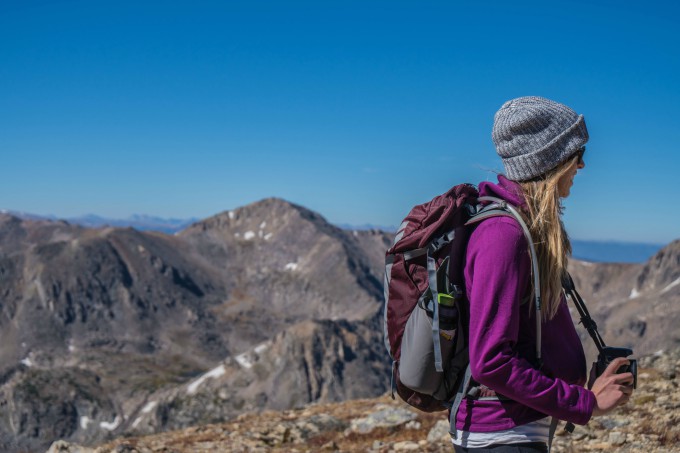Planning a hike soon? Whether you’re going with a partner, a group or on a solo hike, knowing some basic trail safety tips can help you stay safe on the trail. These tips are especially important for beginners!
6 Hiking Safety Tips Everyone Should Know
Know Your Trail
For starters, choose the trail you’ll be taking as soon as possible. It’s important to familiarize yourself with the area as much as you can. Find out the difficulty levels of the trails you’re planning to explore, and take them into consideration. Well-known trails will be marked as beginner, intermediate or advanced. Even experienced hikers, however, may need to alter their route depending on weather conditions. For instance, it’s often advised that you stay off advanced trails in wet weather due to mud slides and other hazards.
Bring a Map or GPS Device
Bring a map or GPS device with you. If you’ve never been on that trail, keep in mind that cell and data signals may not work in some areas. So if you’ve never hiked that particular trail, a map can come in handy in case you get turned around or need to get out quickly in case of emergency.
Know Emergency Contact Information
Find out how secure the trail or park is. While you’d like to think that any hiker you encounter has only the best of intentions (getting out and enjoying nature), that may not always be the case. More often than not, however, dangers do not come in the form of other hikers. You’ll need your phone in case you get lost or if someone in your party is injured. It’s a good idea to keep the number for park/trail security on hand, or if there is no number, you’ll dial emergency services, of course.
Tell Someone About Your Hike
Always tell someone where you’re going. Cell phones aren’t 100 percent reliable, and if you’re unable to use it to make contact with your friends or family, they’ll know to send someone looking for you if you’re not back within a reasonable amount of time. Let someone know where you’re going, what time you’re leaving and approximately what time you should return. You may want to write this information down and leave it at home as well, just in case.
Pack Extra Snacks
Pack enough food and water to last a day or two longer than you plan to be on a trail. That way, if you’re injured or get lost, you’ll be able to sustain yourself until help arrives. If you’re worried about the weight of your backpack, pack calorie-dense but lightweight foods to minimize extra weight.
Use Proper Equipment and Clothing
Have the right equipment. You don’t have to have the fanciest or most expensive equipment — we just mean that you should be dressed for the weather conditions and the trail. Hiking boots (or hiking shoes) are an essential if you plan on hiking regularly. Sneakers just don’t cut it on some trails. Dress in layers if the weather warrants it, and it often does, even in warmer conditions. It’s easy to take layers off, but you don’t want to find yourself in the upper elevations freezing because you checked the weather for lower elevations in that area.
The above tips may seem like no-brainers, but you’d be surprised at how often someone goes on a hike unprepared. Even if you don’t plan to be gone long, it’s always better to over-prepare than to under-prepare.
Share a tip that you always give to new hikers in the comments!


Leave a Reply